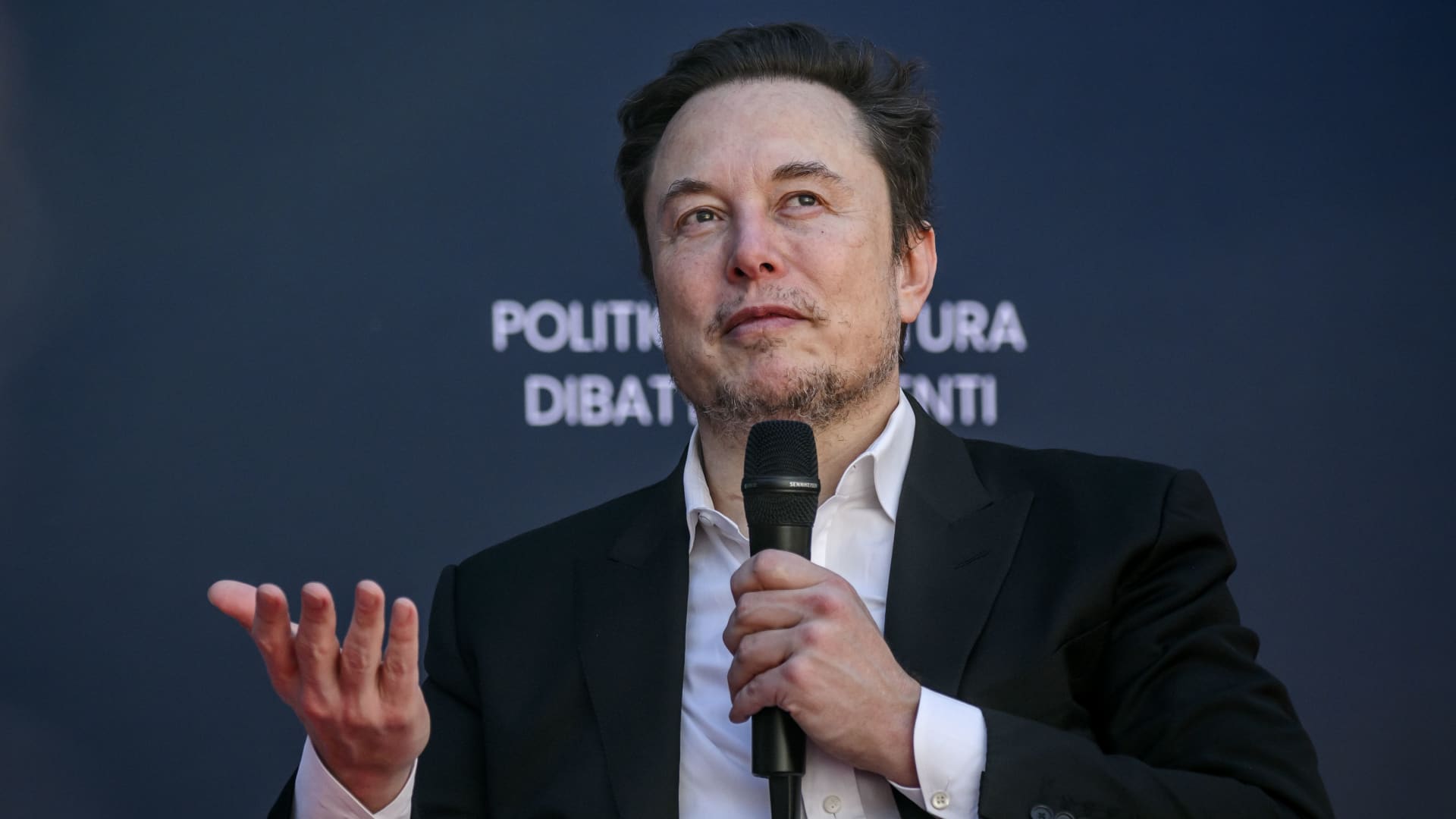Elon Musk, CEO of Tesla, speaks at the Atreju political convention organized by Fratelli d’Italia (Brothers of Italy) in Rome, Italy, on Dec. 15, 2023.
Antonio Masiello | Getty Images
Tesla reported revenue and profit for the fourth quarter that missed analysts’ estimates as automotive revenue increased just 1% from a year earlier. The stock slid in extended trading.
Here are the key numbers:
- Earnings per share: 71 cents, adjusted vs. 74 cents expected by LSEG, formerly known as Refinitiv.
- Revenue: $25.17 billion vs. $25.6 billion expected by LSEG.
Total revenue increased 3% from $24.3 billion a year earlier. Operating margin for the quarter came in at 8.2%, down from the year-ago quarter’s figure of 16% and slightly higher than 7.6% in the prior quarter.
Meager growth in auto revenue was partly due to a reduced average selling price following steep price cuts around the world in the second half of the year. Net income for the quarter more than doubled to $7.9 billion, or $2.27 per share, from $3.7 billion, or $1.07 per share, a year earlier. The increase was mostly due to a $5.9 billion one-time noncash tax benefit.
Tesla said in its investor presentation that vehicle volume growth in 2024 “may be notably lower” than last year’s growth rate as the company works toward launching its “next-generation vehicle” in Texas. The company cautioned investors that it’s “currently between two major growth waves.”
While other U.S. automakers struggled to make and sell a high volume of fully electric vehicles last year, Tesla reported 484,507 deliveries in the fourth quarter and more than 1.8 million for 2023.
During the quarter, Tesla began selling Cybertrucks to customers. The company said in its investor deck that, “We expect the ramp of Cybertruck to be longer than other models given its manufacturing complexity.” Tesla said it now has the capacity to build more than 125,000 Cybertruck vehicles in a year.
For the full year, Tesla said automotive revenue reached $82.42 billion, a 15% increase from 2022. The energy division, which is much smaller than Tesla’s core business, was a bright spot, with revenue rising 54% to $6.04 billion. The unit sells solar energy generation and energy storage systems. Tesla’s “Services and Other” revenue rose 37% from a year earlier to $8.32 billion.
Tesla’s labor costs are rising in the U.S. To make its wages competitive versus automakers such as General Motors, Ford and Stellantis, where employees are represented by the United Auto Workers, Tesla recently rolled out pay increases for many of its hourly factory employees in the U.S.
Operating income decreased year over year to $2.1 billion in the quarter, with Tesla blaming the declining profits on the reduced average sales price of its vehicles and an increase in operating expenses “partly driven by AI and other R&D projects.” Spending on research and development increased to $1.09 billion from $810 million a year earlier, though it was down from $1.16 billion in the prior quarter.
In its shareholder presentation, Tesla confirmed that it had rolled out a new version of its premium driver assistance software, marketed as its Full Self Driving Beta or FSD Beta option. The software doesn’t make Tesla’s cars autonomous, as they still require an attentive driver at the wheel.
As of the end of 2023, Tesla had 54,892 Supercharger connectors available to drivers around the world at 5,952 stations.
Tesla shares have dropped about 16% so far this year as of Wednesday’s close after more than doubling in 2023.

